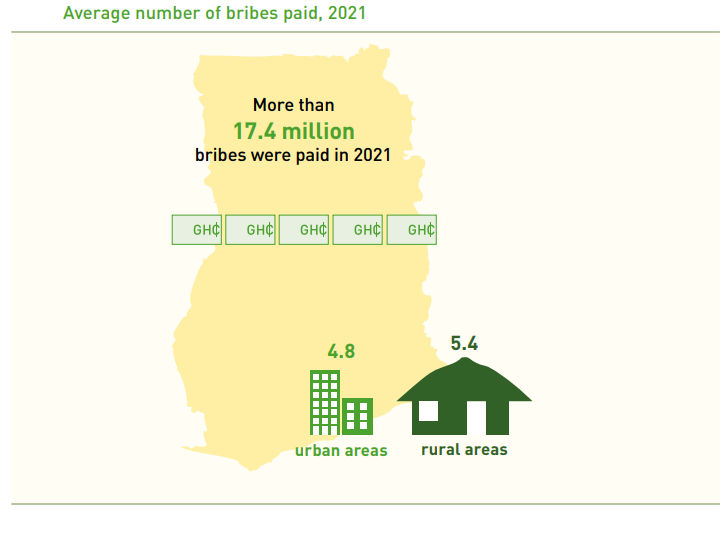The Ghana Integrity Initiative (GII) is not surprised by the latest report that highlights bribery as a major canker in the country.
The latest report indicated that a total of ¢5 billion had been paid in bribes last year to access basic services in both the private and public sectors.
The survey by the Ghana Statistical Service (GSS) dubbed ‘2021 Ghana Integrity of Public Services Survey’ indicates that 26.7% public sector officials were engaged in bribery acts, whilst 9.1% were officials from the private sector.
According to the Programmes Manager of the GII, Mary Awelana Addah, previous studies conducted by her outfit produced similar findings.
In her view, this only gives credence to the fact that the menace is endemic.
“We’ve done this before and it is not so different from the figures we have found,” she said on JoyNews.
Speaking on Newsfile on Saturday, she was impressed that the study was able to quantify losses to that effect.
In her view, the onus now lies on President Akufo-Addo to take up the report’s findings and act on it if he is indeed committed to the corruption fight.
Prevalence of bribery in Ghana
The report also showed that the prevalence of bribery in Ghana is 26.7%, meaning one out of four people who had contact with a public official in the 12 months prior to the survey, had been asked to pay a bribe by a public official, or asked to pay bribe but refused to do so.
The report also showed that the prevalence of bribery in Ghana is 26.7%, meaning one out of four people who had contact with a public official in the 12 months prior to the survey, had been asked to pay a bribe by a public official, or asked to pay bribe but refused to do so.

The survey revealed that, on average, there is no difference in the prevalence of bribery in rural and urban areas of Ghana. There are, however, sizable variations across the 16 regions of the country.
On regional basis, the prevalence of bribery in the Bono East, Savannah and Volta regions, for example, were substantially lower than the national rate. The three regions recorded corruption cases of 11.8%, 14.5% and 19.1% respectively.
In the Western North, Ahafo and North East regions, the corrupt cases reported were substantially higher, at 53.4%, 47.0% and 41.9% respectively.


